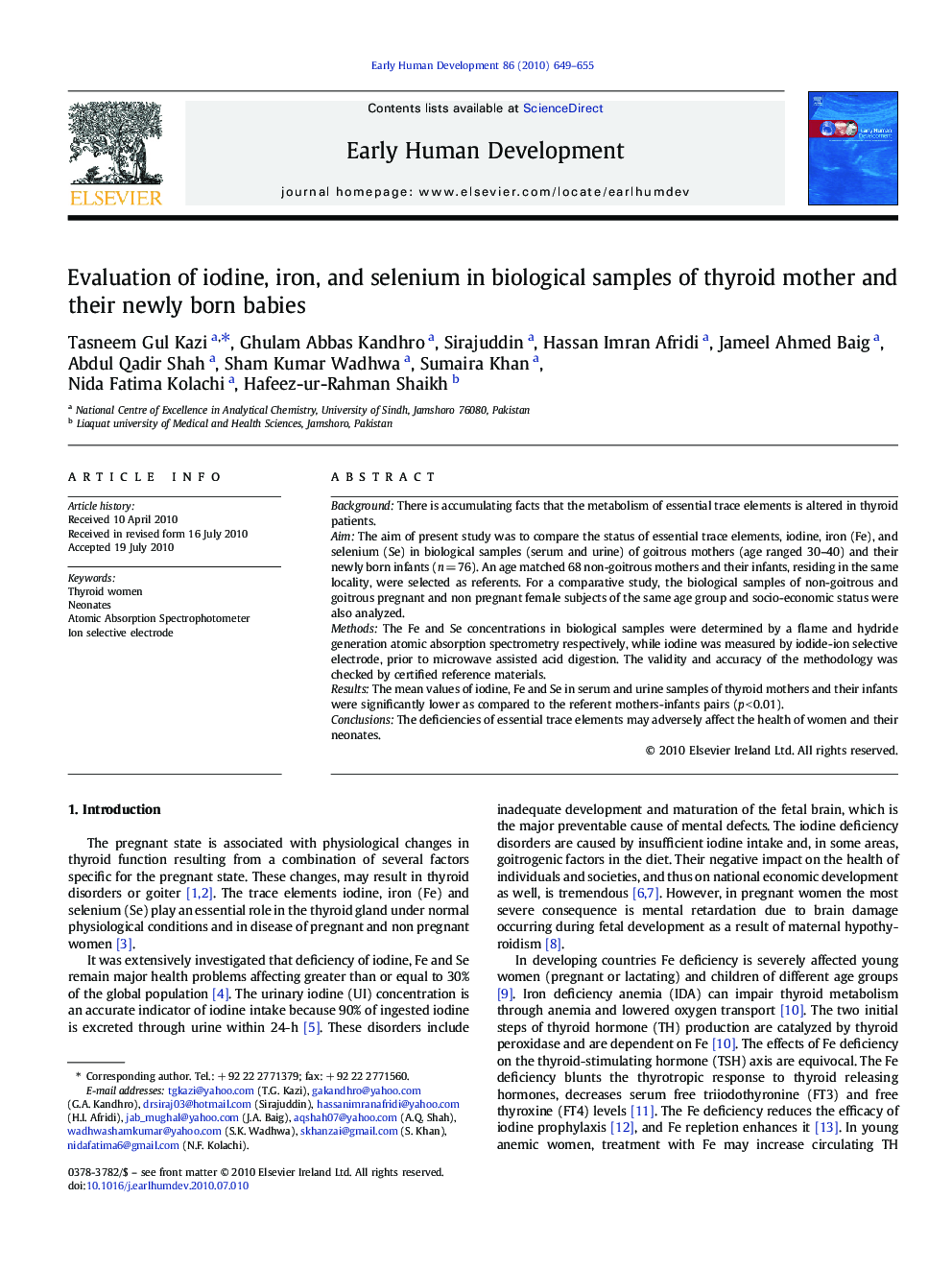| Article ID | Journal | Published Year | Pages | File Type |
|---|---|---|---|---|
| 3917573 | Early Human Development | 2010 | 7 Pages |
BackgroundThere is accumulating facts that the metabolism of essential trace elements is altered in thyroid patients.AimThe aim of present study was to compare the status of essential trace elements, iodine, iron (Fe), and selenium (Se) in biological samples (serum and urine) of goitrous mothers (age ranged 30–40) and their newly born infants (n = 76). An age matched 68 non-goitrous mothers and their infants, residing in the same locality, were selected as referents. For a comparative study, the biological samples of non-goitrous and goitrous pregnant and non pregnant female subjects of the same age group and socio-economic status were also analyzed.MethodsThe Fe and Se concentrations in biological samples were determined by a flame and hydride generation atomic absorption spectrometry respectively, while iodine was measured by iodide-ion selective electrode, prior to microwave assisted acid digestion. The validity and accuracy of the methodology was checked by certified reference materials.ResultsThe mean values of iodine, Fe and Se in serum and urine samples of thyroid mothers and their infants were significantly lower as compared to the referent mothers-infants pairs (p < 0.01).ConclusionsThe deficiencies of essential trace elements may adversely affect the health of women and their neonates.
